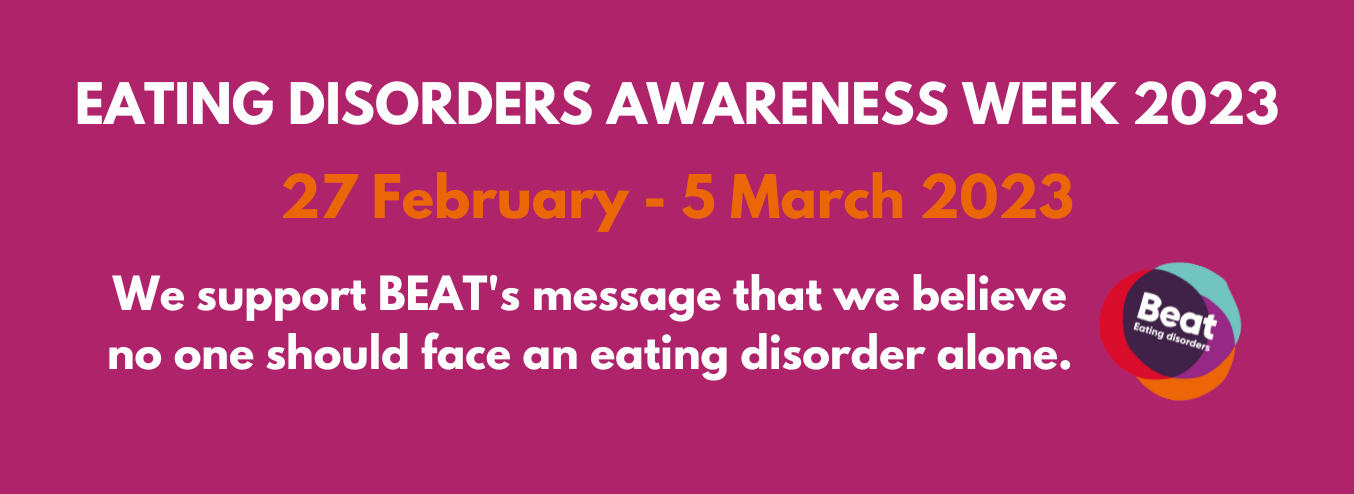
Eating disorders are a serious and potentially life-threatening condition that affect a significant number of people in the UK. According to the UK's National Health Service (NHS), around 1.25 million people in the UK have an eating disorder, with the majority being women between the ages of 12 and 20. Eating disorder awareness week, which takes place annually in the UK, aims to raise awareness about the condition and the support available to those who are affected.
This year, eating disorder awareness week will take place from the 28th of February to the 6th of March 2023. The theme for this year's campaign is 'Taking Action Together'. The campaign aims to highlight the importance of taking action to support those with eating disorders, including early intervention, seeking professional help, and advocating for policy changes to improve access to treatment and support.
Eating disorders are complex mental health conditions that can have a range of physical and psychological symptoms. The most common eating disorders are anorexia nervosa, bulimia nervosa, and binge eating disorder. These conditions can cause significant physical health problems, such as malnutrition, heart problems, and digestive issues, as well as psychological problems, such as depression, anxiety, and low self-esteem.
One of the key messages of eating disorder awareness week is the importance of early intervention. The earlier someone seeks help for an eating disorder, the better their chances of recovery. However, many people with eating disorders may not seek help due to feelings of shame, embarrassment, or denial. It's important to remember that eating disorders are not a choice or a lifestyle, but a serious mental health condition that requires professional treatment.
There are many different types of support available for people with eating disorders, including therapy, medication, and support groups. The NHS provides a range of treatments for eating disorders, including cognitive behavioural therapy (CBT), family-based therapy, and medication for depression and anxiety. Private treatment options are also available for those who can afford it.
It's important to remember that recovery from an eating disorder is possible, but it can take time and patience. It's also important to have a support network in place, including friends, family, and healthcare professionals. Eating disorder awareness week provides an opportunity to raise awareness about the condition and the support available, and to encourage people to seek help if they are struggling.
In addition to raising awareness about eating disorders, eating disorder awareness week also aims to advocate for policy changes to improve access to treatment and support. This includes ensuring that funding for eating disorder services is adequate, and that there is sufficient training for healthcare professionals to identify and treat eating disorders.
In conclusion, eating disorder awareness week is an important campaign that aims to raise awareness about the prevalence of eating disorders in the UK, the support available, and the importance of early intervention. If you or someone you know is struggling with an eating disorder, it's important to seek professional help as soon as possible. Remember that recovery is possible, and with the right support, you can overcome this condition.
This site uses cookies that enable us to make improvements, provide relevant content, and for analytics purposes. For more details, see our Cookie Policy. By clicking Accept, you consent to our use of cookies.